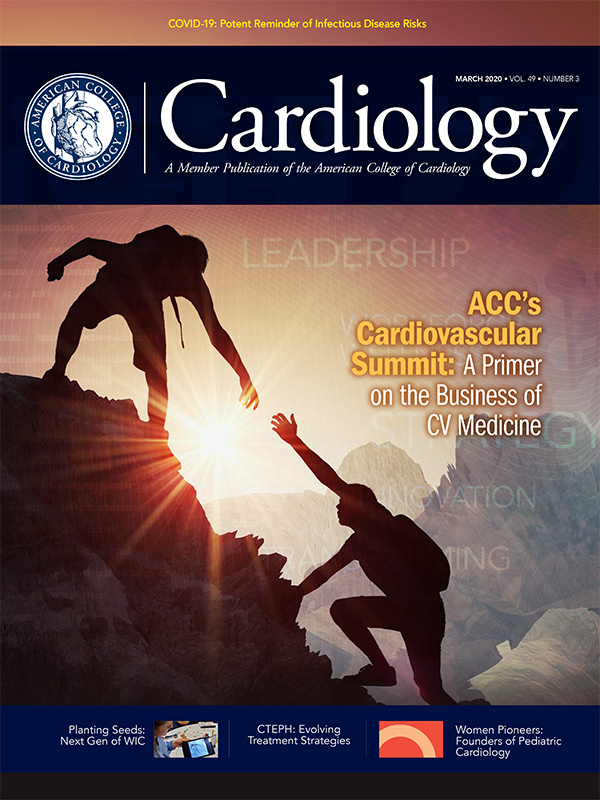Cover Story | Primer For the Economics in Cardiovascular Practices and Cardiovascular Service Lines

This Cardiovascular Summit pre-conference workshop provided a whirlwind overview of the current financial and regulatory health care landscape, with topics ranging from developing the "perfect" contract when taking a new job; understanding risk scoring; a dyad leadership model for service line departments (physician and administrator); Medicare 101, including the basics of the Quality Payment Program; tracking key indicators through the revenue cycle; and new evaluation and management guidelines.
Summit Co-Director Cathleen Biga, RN, MSN, FACC discussed key issues when designing a compensation model for physicians. Such models, she said, must:
- Be fair, equitable, and sustainable.
- Have physicians at the table for design.
- Offer predictability and stability for physicians.
- Align with hospital and/or medical school compensation plans.
- Be relevant locally and benchmarked nationally.
- Ensure compensation and opportunity equity.
- Be reviewed periodically for validity, sustainability opportunities to improve and refine.
- Be evaluated and updated annually.
William E. Downey, MD, FACC, of the Sanger Heart & Vascular Institute in Charlotte, NC, discussed the potential shift of PCI from hospital centers to ambulatory surgery centers (ASC), based on the new Medicare rules, identifying several issues for administrators:
- Coronary angiography or PCI are not allowed in ASCs in about half of states.
- Revenue may be lower than for procedures performed in the hospital outpatient setting and possibly further diluted via joint ventures.
- Physicians may be reluctant to move to ASCs given safety and quality concerns.
- Physicians may open their own ASCs for PCI (physicians are equity partners in 92% of ASCs).
- Centers will require accreditation.
Telehealth is a growing area and a roadmap for implementing telehealth options was provided by Downey and Linda Gates-Striby, CCS-P, ACS-CA, of Ascension Medical Group in Indianapolis, IN. Important questions to consider, they said, include:
- What are your top use cases?
- What approach best matches your clinical needs?
- What will your platform or delivery method look like?
- How will you determine the patient's ability to utilize the platform?
- How will you minimize potential down time and live IT issues?
- How will you document your encounter and what options does your system support?
- Who needs to be on your implementation team?
- How do you minimize confusion and compliance risks?
- How does this affect your compensation model?
- How do you minimize patient perception issues? It should be a positive option, not give the impression that you want to start billing patients for things you may have been doing for free.
- Who is your competition and what are they doing?
- How will commercial payers reimburse?

Clinical Topics: Invasive Cardiovascular Angiography and Intervention, Noninvasive Imaging, Interventions and Imaging, Angiography, Nuclear Imaging
Keywords: ACC Publications, Cardiology Magazine, Accreditation, Telemedicine, Benchmarking, Hospital-Physician Joint Ventures, Percutaneous Coronary Intervention, Outpatients, Ambulatory Surgical Procedures, Coronary Angiography, Schools, Medical, Medicare, Centers for Medicare and Medicaid Services, U.S.
< Back to Listings


